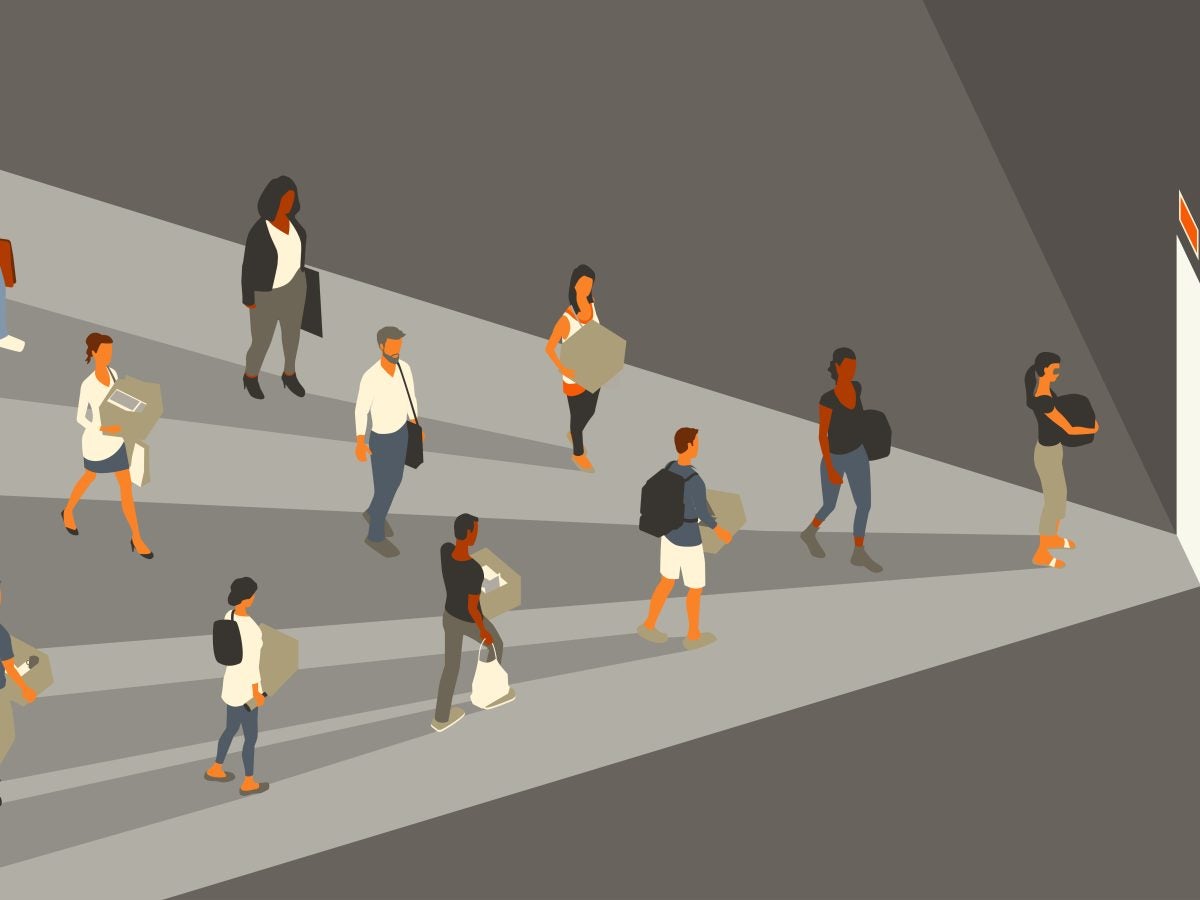
Everyday, we’re inundated with news of mass layoffs deployed by companies ranging from tech to retail—most of which are facing the most significant downsizings in the history of their existence. Even if your job is secure, a wave of emotion can hit after seeing so many people face financial insecurity and if you’re not careful, compassion fatigue can settle in.
“The way that I think about these events and the way they’ve been characterized by academics is that they really are sense making events,” said Adina Sterling, an associate professor at Stanford’s School Of Business and a scholar at The Academy of Management. “There’s a lot of uncertainty that comes up as people are laid off, as colleagues and friends are laid off, and there’s a mix of emotions. So, obviously I think sadness is the first one that comes to mind for people. But what makes these so tough is that oftentimes there’s mixed emotions because people can feel like, well, it wasn’t me. And so there can be some guilt that comes from that, but then there can also anxiousness and fear because while it is happening to other people, it could easily happen to you as well.”
Research shows that this increased level of stress can inadvertently lead to burnout over time.
In a 2020 study conducted by the Alberta Teachers’ Association, a Canadian-based educators organization, it was found that a large number of burnout cases among scholars were a result of emotional labor expelled for their collegueaues.
Sterling says that it’s important for people to prioritize their own mental well-being in these cases because, as the saying goes, you can’t pour from an empty cup.
“It’s really hard to give to our colleagues that are experiencing these very psychologically distressing events if we are also not being mindful and taking care of ourselves.”
Sterling suggests refocusing inward before it’s too late.
“I know that on one hand this seems obvious, but on the other hand, it is so important and we’re all kind of screaming this from the rooftop. Self care is so key. It’s really important to give yourself space, to be gentle with yourself during this period of heightened stress, to do things that you know are good for you. So that could look like practicing mindfulness or meditation or longer walks or better nutrition.”
She also says it’s important to not overextend oneself when trying to help a loved or former colleagues who’ve lost their jobs.







“People should keep in mind that when their colleagues are going through this, they are sad. It’s a sad event, but when sad events happen to people in our lives, oftentimes those events hit those particular people much more than they hit us. And so a way of reframing the event that can be edifying for that individual and also help some of our emotional reserves is to move to a place of gratitude that you direct toward that person. So that looks like expressing gratitude about the diligence with which someone did their job or their sense of humor at work, or the way they really pushed through on projects in the past and expressing how much you’re going to miss them—just really trying to edify that person versus saying, okay, oh, my gosh, I’m so sad for you. This is horrible.”
Sterling also says an effective way to combat emotional fatigue is with proactivity.
“Mentioning you’re there for the person who’s been laid off during this employment transition is fine, but if you take an action step as well, that’s better. Providing a reference or referral or other forms of help is great. While it’s still a tough time for them, it makes it a bit easier for them to try to move them forward.”






